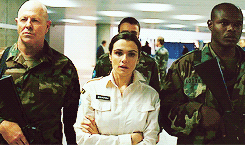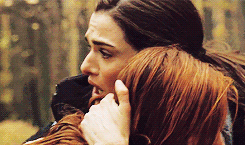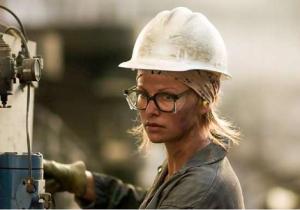I watched North Country when I was 11. I don’t remember why I chose to, whether I picked it up at the video store or if it was on television, but I sat through the entire film regardless, in awe. What I do remember is that it is perhaps the first time I have ever cried out of frustration. It is one of the first conscious encounters I ever had with sexism and the reality that the world did not operate as I believed.
It has been several years since Charlize Theron and Director Niki Caro began to radically change how I viewed the world. However, I believe taking CS 110 and seeing the film listed as a recommendation to supplement our discussions on how the pressures of power and violence operate in our society is cause to reflect. I watched North Country for the first time as a form of entertainment, but have since learned that the film has a function beyond this. North Country educated me, it was a cathartic experience that has few parallels. Learning that Josey Aimes and her attackers were based on living human beings had a tremendous impact on me. I grew disenchanted, but eventually motivated. Josey Aimes became a hero to me.
The film is inspired by the Jensen v. Eveleth Taconite Company class action suit, a chronicle of Lois Jenson’s experience as a coal miner who filed a lawsuit against a company that would not protect her when pervasively and maliciously sexually harassed. Charlize Theron plays the protagonist Josey Aimes–based on Jenson–who would go on to suffer harassment measures worse than before she attempted to fight back.
The Whistleblower is a film I watched more recently, a little while after it was released in 2010. I had not thought to relate it to North Country until they were recommended alongside each other. Like North Country, The Whistleblower centers around women who are abused as sexual objects, though perhaps tackles a much more heinous truth. Rachel Weisz plays the protagonist Kathryn Bolkovak–based on the actual Kathryn Bolkovak–who seeks to uncover the truth behind an illicit sex trafficking ring in Bos nia. The ring is in part protected by UN peacekeepers, and throughout the film, Bolkovak attempts to deliver justice to the multitudes of victims forced into sex slavery. Bolkovak and Aimes are both met with grim backlash and consequence to fighting a society that aims to perpetuate gendered violence and male dominance. Both are bullied and receive little support from others. This treatment worsens until both have their lives threatened. But they do not retreat.
nia. The ring is in part protected by UN peacekeepers, and throughout the film, Bolkovak attempts to deliver justice to the multitudes of victims forced into sex slavery. Bolkovak and Aimes are both met with grim backlash and consequence to fighting a society that aims to perpetuate gendered violence and male dominance. Both are bullied and receive little support from others. This treatment worsens until both have their lives threatened. But they do not retreat.
What I find so remarkable about these films is the notion that the women are the subversive characters. Though the narratives are clear with regard to who remains in the wrong, how Aimes and Bolkovak are treated by those who work to perpetuate the status quo leave much to fear. They are brave, courageous, and measures more resolute than I could ever hope to be.
There is a scene in North Country that I will never forget. In the midst of her lawsuit, Aimes is attacked at work. She is not beaten, but instead locked in a portable toilet by several of her male colleagues, undeniably guilty of sexually harassing at least one of their nine female colleagues. They surround her stall and tilt it back and forth until it topples over and drenches her in urine and fecal matter. Aimes does not back down, though I will never look at a porta potty in the same manner again.
Both films demonstrate that violence against women has become so commonplace, so normalized, that acting against this crime is what is considered aberrant. Moreover, both films feature instances of gender intimidation–where an individual fears being raped or assaulted for being a certain sex–and sexual assault that are largely unanswered for. Though Aimes was successful in her suit against the company, her aggressors were left unpunished. Similarly, Bolkovak’s efforts go unnoticed as many of the peacekeepers involved in the sex trafficking ring are simply sent back to the UK without ever having to appear in court due to immunity laws.
North Country and The Whistleblower are both testaments to how violence against women have grown to become normalized. Sexual assault and sexual harassment are often given little response, as is true today, where an estimated 60% of sexual assaults go unreported, with a much smaller percentage receiving time in front of a judge and jury.
I do not think of these films in the same way that I did when I first watched them. Instead I am more horrified and disappointed in how our culture has failed to address such a severe problem. I am horrified by how these crimes so often go unanswered because of the notion that this behavior is normalized. Yet I am also motivated because I believe that it is possible to slowly but surely dissolve these pressures. I am motivated because individuals like Lois Jenson and Kathryn Bolkovac exist, because I know that they are not alone in fighting back.
We are peacekeepers who came to protect the innocent, but now prey upon them in the worst ways possible. We may be accused of thinking with our hearts instead of our heads, but we will have our humanity.
Kathryn Bolkovak, The Whistleblower

